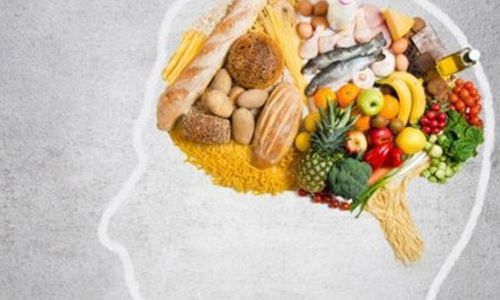The human brain, a remarkable organ weighing just three pounds, governs every thought, emotion, and bodily function. As the command center of the nervous system, it demands constant nourishment to operate at peak efficiency. While genetics and lifestyle factors like exercise and sleep play pivotal roles in brain health, nutrition emerges as a cornerstone of cognitive well-being. The foods we consume daily can either fuel mental clarity, memory, and focus or contribute to brain fog, fatigue, and long-term decline. This article explores the science-backed dietary choices that support brain health, enhance cognitive function, and protect against neurodegenerative diseases. From omega-3 fatty acids to antioxidants, vitamins, and minerals, discover how to build a brain-boosting plate.
The Brain-Food Connection: Why Diet Matters
The brain is an energy-intensive organ, consuming roughly 20% of the body’s calories despite accounting for only 2% of its weight. This high metabolic demand makes it vulnerable to oxidative stress, inflammation, and nutrient deficiencies. Chronic inflammation, for instance, has been linked to Alzheimer’s disease, Parkinson’s disease, and depression. Similarly, unstable molecules called free radicals can damage brain cells, impairing memory and learning.
A diet rich in anti-inflammatory and antioxidant compounds can counteract these threats. Essential nutrients like omega-3 fatty acids, vitamins B, C, D, and E, and minerals such as zinc and magnesium support neuronal communication, protect against cognitive decline, and promote the growth of new brain cells. Below, we delve into specific food groups and their brain-boosting benefits.

Omega-3 Fatty Acids: The Brain’s Building Blocks
Omega-3 fatty acids, particularly docosahexaenoic acid (DHA) and eicosapentaenoic acid (EPA), are critical for brain health. The brain’s structure is 60% fat, and DHA is the primary omega-3 found in neuronal membranes. These fats enhance synaptic plasticity—the brain’s ability to form new connections—and reduce inflammation. Studies link low omega-3 intake to smaller brain volumes and impaired cognitive performance.
Top Sources:
- Fatty Fish: Salmon, mackerel, sardines, and trout are rich in DHA and EPA. Aim for two servings weekly.
- Walnuts: A handful daily provides alpha-linolenic acid (ALA), a plant-based omega-3 converted to DHA in the body.
- Flaxseeds and Chia Seeds: Ground flaxseeds or chia seeds sprinkled on yogurt or smoothies boost ALA intake.
- Algae Oil: A vegan-friendly DHA supplement derived from marine algae.
Pro Tip: Pair omega-3s with vitamin D (found in fortified foods or sunlight) for enhanced absorption and cognitive benefits.
Antioxidants: Combating Oxidative Stress
Antioxidants neutralize free radicals, preventing damage to brain cells. Diets high in antioxidants are associated with a lower risk of dementia and improved cognitive flexibility.
Key Antioxidant-Rich Foods:
- Berries: Blueberries, strawberries, and blackberries contain flavonoids like anthocyanins, which enhance memory and delay mental decline.
- Dark Chocolate: Flavonol-rich dark chocolate (70% cocoa or higher) improves blood flow to the brain and boosts mood.
- Leafy Greens: Spinach, kale, and Swiss chard are loaded with vitamins C, E, and beta-carotene.
- Turmeric: Curcumin, the active compound in turmeric, crosses the blood-brain barrier to reduce inflammation and amyloid plaques linked to Alzheimer’s.
Pro Tip: Pair turmeric with black pepper to enhance curcumin absorption by 2,000%.
Vitamins and Minerals: The Brain’s Support System
Certain vitamins and minerals act as cofactors for enzymes essential to brain metabolism and neurotransmitter synthesis.
Vitamin B Complex:
- B12: Found in eggs, dairy, and fortified cereals, B12 deficiency is linked to memory loss and depression.
- B6 and B9 (Folate): Avocados, lentils, and spinach provide these vitamins, which regulate homocysteine levels—high levels are tied to cognitive impairment.
Vitamin E:
- Nuts, seeds, and sunflower oil protect cell membranes from oxidative damage.
Vitamin C:
- Citrus fruits, bell peppers, and broccoli support neurotransmitter production and reduce anxiety.
Minerals:

- Zinc: Oysters, pumpkin seeds, and cashews enhance memory and learning.
- Magnesium: Almonds, spinach, and dark chocolate regulate neurotransmitters and reduce stress.
Pro Tip: Avoid excessive supplementation; prioritize whole foods to prevent nutrient imbalances.
Healthy Fats: Beyond Omega-3s
While omega-3s steal the spotlight, other fats also benefit the brain.
Monounsaturated Fats (MUFAs):
- Avocados and olive oil improve blood flow and reduce the risk of age-related cognitive decline.
Saturated Fats:
- Moderate intake from coconut oil or grass-fed butter may support brain function, but excess is linked to inflammation.
Pro Tip: Replace processed vegetable oils (e.g., soybean oil) with avocado oil or extra-virgin olive oil for cooking.
Complex Carbohydrates: Sustained Energy for the Brain
The brain relies on glucose for fuel, but not all carbs are created equal. Simple sugars cause energy crashes, while complex carbs provide steady energy.
Optimal Sources:
- Oatmeal: Rich in fiber and B-vitamins, oatmeal stabilizes blood sugar and enhances focus.
- Sweet Potatoes: High in beta-carotene and fiber, they support memory and mood.
- Quinoa: A complete protein with magnesium and iron, quinoa aids neurotransmitter function.
Pro Tip: Pair carbs with protein or fat (e.g., almond butter on apple slices) to slow glucose absorption.
Probiotics and Prebiotics: The Gut-Brain Axis
Emerging research highlights the gut-brain connection, where gut bacteria influence mood, stress, and cognition via the vagus nerve.
Probiotic Foods:
- Yogurt, kefir, and kimchi introduce beneficial bacteria.
Prebiotic Foods:

- Garlic, onions, and bananas feed gut microbes, promoting the production of short-chain fatty acids linked to reduced anxiety.
Pro Tip: Combine probiotics and prebiotics (e.g., yogurt with banana slices) for a synergistic effect.
Hydration: The Silent Cognitive Enhancer
Even mild dehydration impairs memory, attention, and mood. The brain is 73% water, making hydration non-negotiable.
Guidelines:
- Aim for 8–10 cups of water daily, adjusted for activity level and climate.
- Herbal teas (e.g., green tea) and water-rich foods (cucumbers, watermelon) contribute to hydration.
Pro Tip: Sip water consistently rather than chugging to maintain optimal brain function.
Foods to Limit or Avoid
Certain foods harm brain health by promoting inflammation, oxidative stress, or blood sugar spikes.
- Added Sugars: Sugary drinks, pastries, and processed snacks impair memory and shrink the hippocampus.
- Trans Fats: Fried foods, margarine, and packaged baked goods increase Alzheimer’s risk.
- Excessive Alcohol: Chronic drinking shrinks brain tissue and disrupts neurotransmitters.
- Processed Meats: High in sodium and nitrates, they may impair cognitive function.
Pro Tip: Read labels to avoid hidden sugars (e.g., high-fructose corn syrup) and partially hydrogenated oils.
The Mediterranean Diet: A Blueprint for Brain Health
The Mediterranean diet, rich in fish, olive oil, nuts, fruits, and vegetables, consistently ranks as the best diet for brain health. A 2021 study in JAMA Neurology found that adherence to this diet reduced Alzheimer’s risk by 35%. Key principles include:
- Prioritizing plant-based foods.
- Using olive oil as the primary fat.
- Limiting red meat to occasional consumption.
- Enjoying meals socially to reduce stress.
Lifestyle Synergy: Diet, Exercise, and Sleep
No single food guarantees a healthy brain. Pair a brain-boosting diet with:
- Exercise: Aerobic activity increases brain-derived neurotrophic factor (BDNF), a protein that promotes neuron growth.
- Sleep: During deep sleep, the brain clears toxins like beta-amyloid.
- Mindfulness: Meditation reduces stress hormones that impair memory.
Conclusion: Fueling a Future-Ready Brain
The adage “you are what you eat” holds profound truth for brain health. By prioritizing omega-3s, antioxidants, vitamins, and minerals while minimizing processed foods, you arm your brain against cognitive decline and unlock its full potential. Small, consistent dietary shifts—like swapping sugary snacks for walnuts or incorporating turmeric into meals—can yield lifelong benefits. Remember, the brain is a dynamic organ; nourish it wisely, and it will reward you with clarity, creativity, and resilience.
Final Pro Tip: Start today. Your future self will thank you.






0 comments